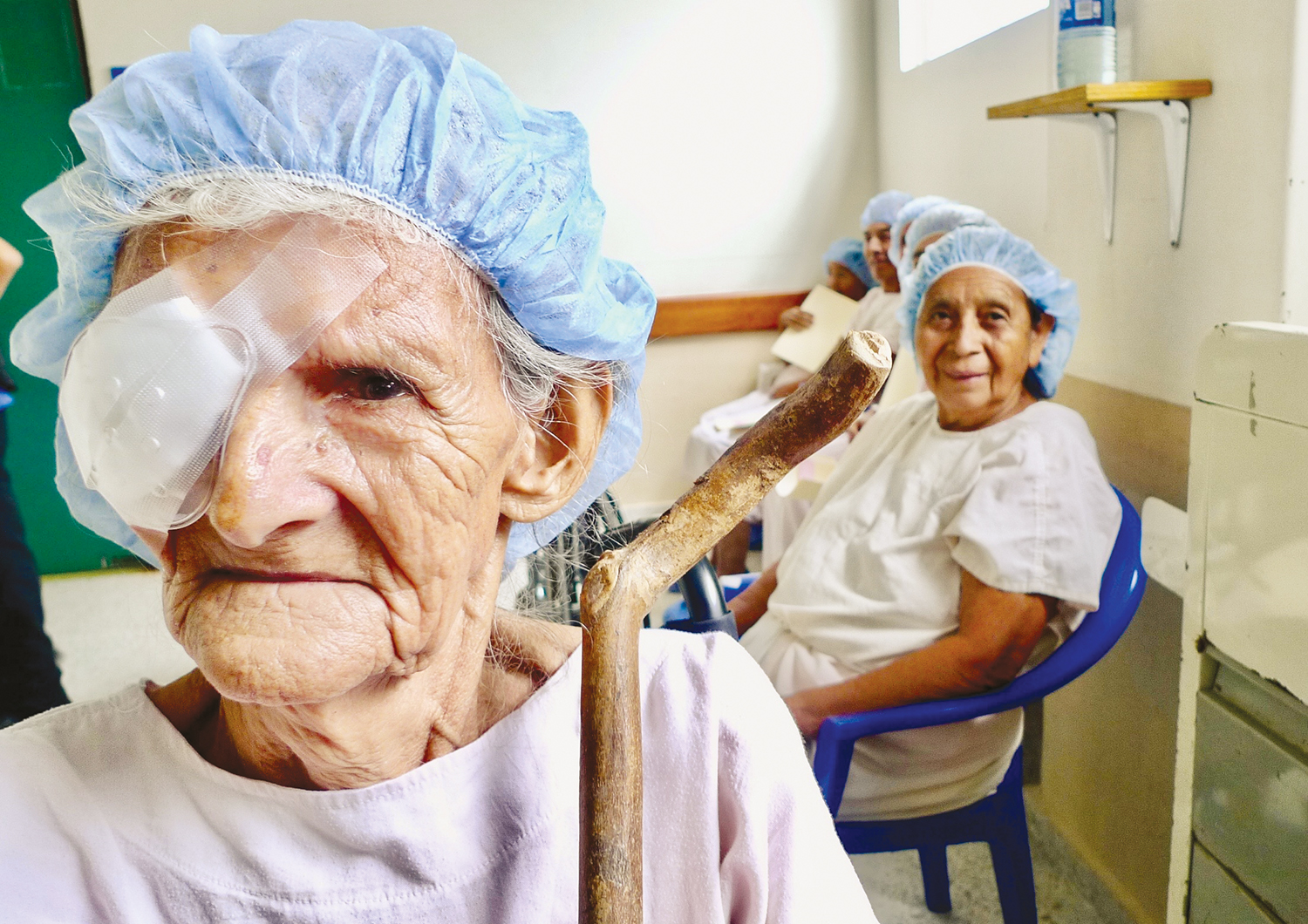
For many people who come to the PazSalud optical missions in El Salvador, their world is dark.
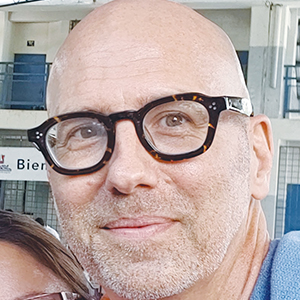
"They spend years and years getting blinder and blinder and blinder, and things get darker every day, and they don't know why," says Darren Streff, the program coordinator for PazSalud.
Often, the solution is a simple cataract surgery. For many people, it's the first time in decades they can see clearly, says Streff.
He recalls a patient who opened her eyes the day after surgery. She was surrounded by family, including her grandson, who was about 10 and born after she developed cataracts.
"She burst out in tears because she had never seen her grandson before," says Streff.
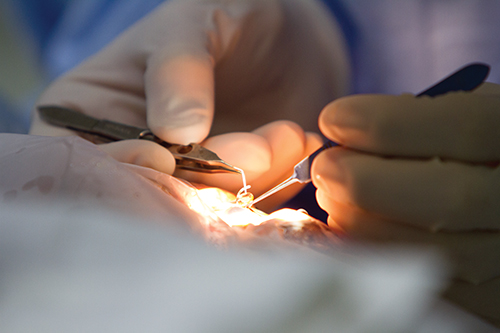
PazSalud, a ministry of Vancouver, Washington-based PeaceHealth, is celebrating 25 years of work in El Salvador. (PazSalud is PeaceHealth in Spanish.) Last year, the ministry provided optometry and cataract screenings to nearly 3,900 of the poorest Salvadorans, a record. The ministry gave glasses to many of those who were screened and performed 345 cataract surgeries during three weeklong missions.
Streff is the only PeaceHealth employee based in El Salvador. He has been there since 2013. He sets up the missions with the help of local and government health care entities and partners with doctors and students at Dr. Andres Bello University in San Salvador to do the screenings and surgeries.
That's a shift from a model that PazSalud used before the COVID-19 pandemic. Under that model, PeaceHealth doctors and clinicians from the United States flew to El Salvador twice a year for a week to do the same work. They'd see roughly 1,600 patients a year for screenings and perform surgeries on 100 patients.
"So it's a major, major difference," says Streff. "This year we'll be in the quadrupling range for our best year in the old model."
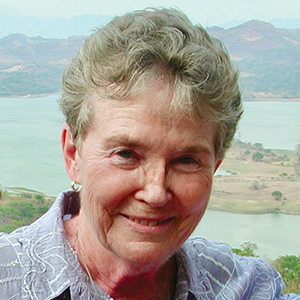
Wartime roots
PeaceHealth and its founding congregation, the Sisters of St. Joseph of Peace, established PazSalud in El Salvador as an international humanitarian ministry in 2000. The late Sr. Eleanor Gilmore is credited as being its founder. Sr. Gilmore was among women religious working with the people of El Salvador in the late 1980s during their nation's civil war.
Sr. Andrea Nenzel, congregation leader, and Sr. Margaret Jane Kling, went to El Salvador in late 1984 to run a refugee camp. "As the war wore down, we decided we really have a special connection with El Salvador," says Sr. Nenzel, who along with Sr. Kling became the namesake of several Salvadoran babies. "So what can we do?"
The sisters explored the idea of opening a clinic, but then decided to send teams of medical workers from PeaceHealth to villages to help and to have a cross-cultural experience of their own.
Changing lives
The teams provided general medical, pediatric, gynecological and optometric care, and adjusted to local needs as the years went by. The missions were powerful, spiritually renewing experiences for PeaceHealth caregivers, and for many it clarified the health system's overall Catholic mission.
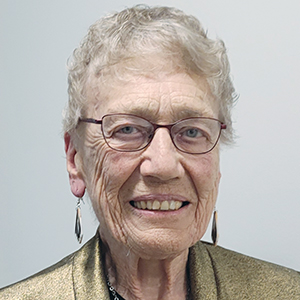
"Many of them were changed for life because of what they experienced," says Sr. Nenzel. "Like a lot of doctors said, to be able to do medicine where what you're really doing is focusing on the people and doing the best you can to help them and not have to worry about paperwork, it was healthy for them and really opened their hearts."
But crime and gang violence in El Salvador started to limit where people could set up the missions and increased liability. Then in 2020, the COVID-19 pandemic shut everything down.
Streff, who is originally from Wisconsin, was by then the only one working for the program. "And that was the point at which PeaceHealth and the (sisters) took the opportunity to say, 'Let's pause, take a look, and maybe there's something we can do,'" he says.
A focus on eyes
The system and the sisters decided to refine PazSalud's model to focus on eye care for marginalized patients. About 86% of people in rural El Salvador have no access to any type of eye care. About 11% of the country's population, or 720,000 people, is over 60 years of age, and about 40% of them can't read.
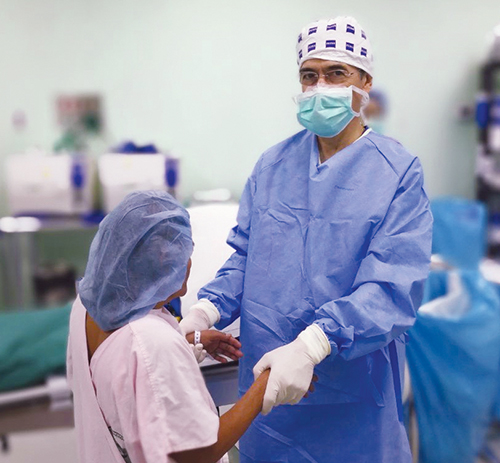
For most of those seniors, eye care is a luxury. Many were farmers, mechanics or security guards who had to stop working because of lost vision, explains Streff.
"That's one of the sad realities of life in El Salvador," says Streff. "When you're poor, you really need to work until you die. You have to keep making money doing something just to be able to afford the food that you need that day to live."
PazSalud relies on partnerships with local organizations, government entities and medical providers as well as American groups that donate medicines and supplies. SEE International, a nonprofit humanitarian organization focused on vision, and Alcon, a medical device and pharmaceutical company, send supplies. These include lenses, surgical microscopes, operating tables, and phacoemulstifiers, which are used to remove cloudy, cataract-damaged lenses. Lions Clubs in Washington and Wisconsin supply eyeglasses.
Helping the neediest
To organize a mission in El Salvador, Streff goes to a community and talks to the mayor and his or her team and works with the local public health clinic to identify the poorest of the poor who may need eye care.
"That takes time to do that," he says. "It would be a million times easier for me if we were to go to a community and just have somebody go around with a megaphone saying, 'Optometry mission!'"
He says PazSalud wants to serve Salvadorans who have "zero access" to eye care. Once those people are identified, they are given an appointment to attend a screening or to have surgery.
The clinicians provide screenings in locations such as a community center or high school gym. Surgeons perform cataract surgeries at Rosales National Hospital in San Salvador with ophthalmology residents assisting. Eight residents can end up helping 400 patients over the course of three one-week missions a year, says Streff.
"When they graduate, they are way more experienced optometrists than they would normally be," he says. "My ulterior motive is, let's get the poorest of the poor patients, so that (residents) can see them, and so that they will get inundated with this idea that we need to constantly give back to the poor."
Streff says that the surgery and optometry missions are "highly well-organized, almost in a military fashion," otherwise, they couldn't help as many people. He adds that they are "extremely happy events."
Sr. Nenzel says in the past sisters visited El Salvador regularly to help provide care, but then it became apparent that Streff "was quite capable on his own. He's a person that is really called to mission. It's just in his blood, and he was willing to do it. He's the perfect person."
Challenges to fundraising
Ironically, since PazSalud switched to a domestic model that is more efficient and can help more people, it is more difficult to fundraise because people from the United States don't have direct experience with the ministry.
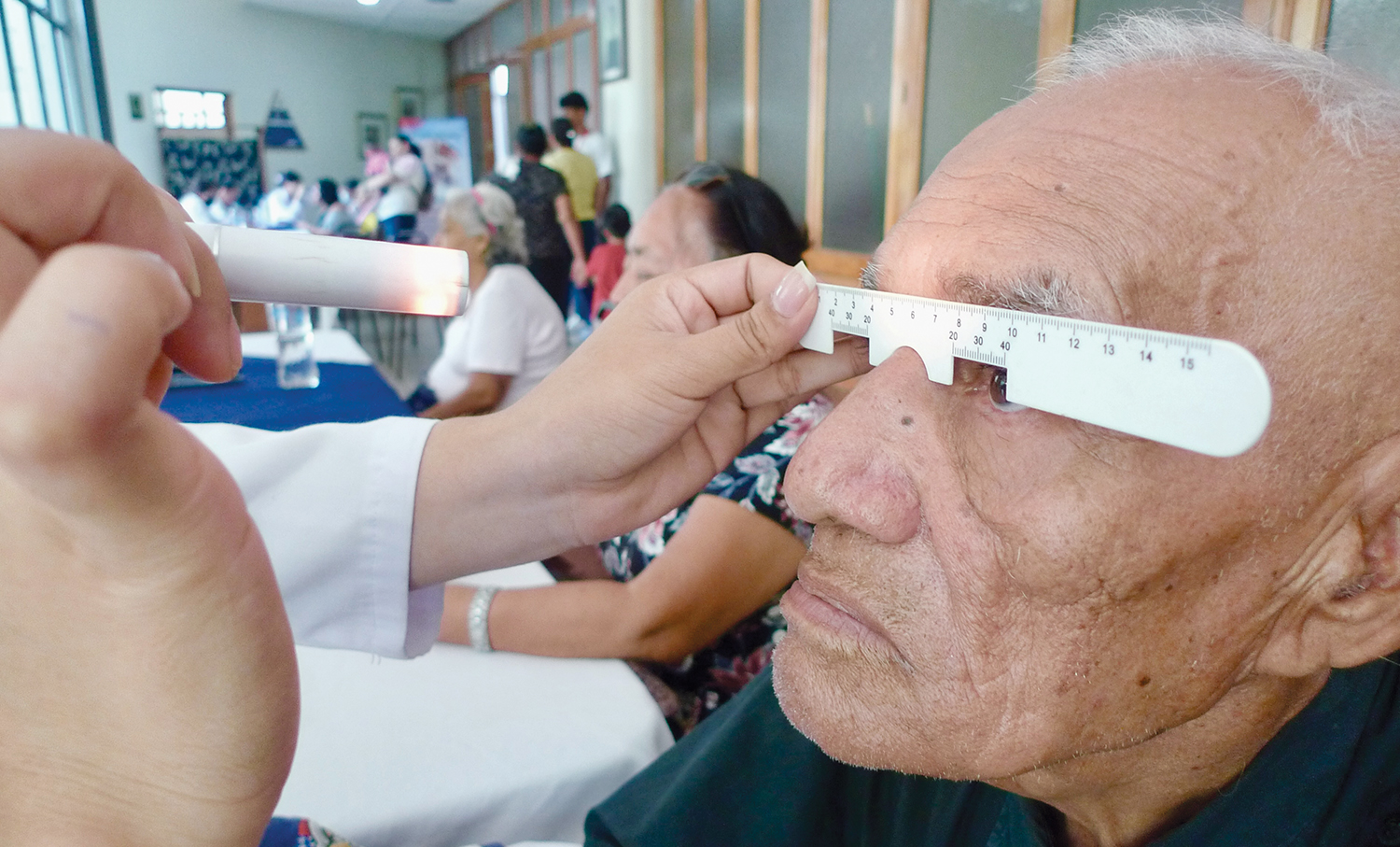
"That's the challenge of every international (nongovernmental organization) that works overseas, is to impress upon people the need for their work when those donors haven't even really ever seen it," he says.
PeaceHealth and the Sisters of St. Joseph of Peace cover most of PazSalud's budget, but getting donations from individuals is "very, very challenging," Streff says.
Streff sees the impact of the ministry. The people who get cataract surgeries and glasses to restore their sight can thread a needle to sew again, walk safely to work again, cook for their families again without fear of burning themselves.
Sr. Nenzel thinks of the older women who simply want to read their Bible again. "And you give them reading glasses, and all of a sudden it's like they're 10 years younger, and they're able to see," she says.
Streff has no special plans to celebrate PazSalud's anniversary except to organize its "biggest year ever." He expects doctors to see 4,000 patients for exams at its missions and perform 450 surgeries this year.
"We can just be constantly working and serve in El Salvador," Streff says, "and that's probably the best way to celebrate 25."
To learn more about PazSalud or to donate, visit Peacehealth.org/pazsalud/donate.
